Bearded Dragons are fascinating creatures that make a great pet for anybody who loves reptiles. They are popular for their calm and docile nature, and they can even recognize their owners. Since bearded dragons are omnivores, they feed on both plant-based and animal-based foods. As a pet owner, you need to understand the right food to feed your bearded dragon to keep them healthy and happy. In this blog post, we’ll explore whether bearded dragons can eat zucchini.
Vegetables for a Beardie: All You Need to Know
Bearded dragons are probably the most widespread reptile pets now. They are really friendly, low maintenance, and have a personality that can’t be beaten. As a responsible owner, it’s highly important to provide your reptile pet with a balanced diet which includes both vegetables and proteins. For the beginning we offer you to discuss all the information you need to know about feeding your beardie vegetables, from the best veggies to feed them, to how much to give them, and everything in between.
The Best Vegetables for Your Beardie
The variety of vegetables that you can feed your beardie is vast, but some are more beneficial than others. Some of the best vegetables to feed your beardie include kale, collard greens,mustard greens, turnip greens, broccoli, dandelion greens, carrots, bok choy, sweet potato, and squash.
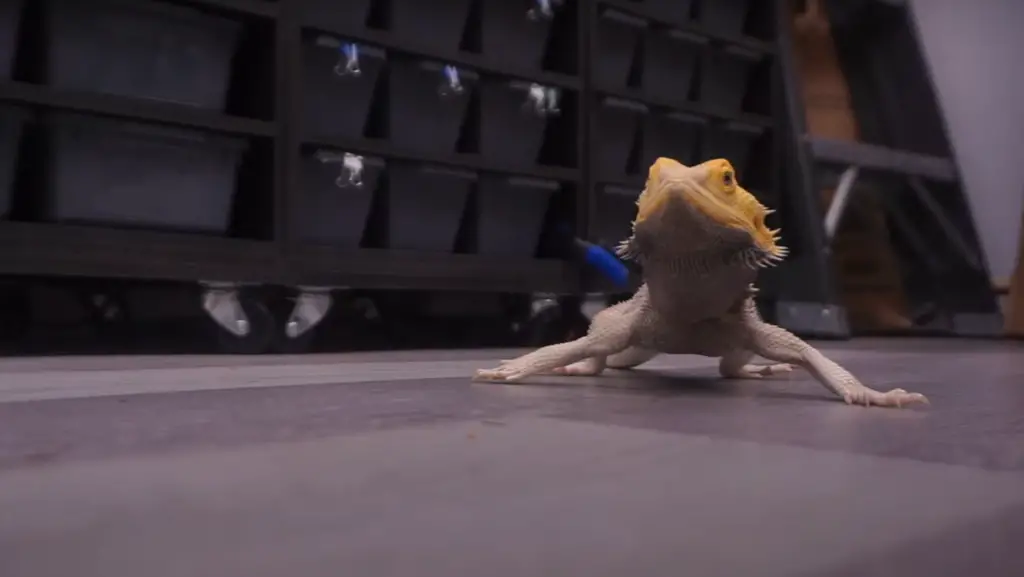
These vegetables are all full of minerals and vitamins that your reptile pet needs to stay healthy.[1]
How Often to Feed Your Beardie Vegetables
As a general rule, vegetables should make up 20%-25% of your beardie’s diet. That said, the amount of vegetables you feed your beardie will depend on their age and size. For example, a juvenile beardie will need more veggies than an adult beardie. However, as your beardie matures, their diet should shift towards more protein-based foods. As such, it’s important to monitor your beardie’s weight and adjust their diet accordingly.
Preparing Vegetables for Your Beardie
Before feeding your beardie any type of vegetable, it’s important to thoroughly wash and rinse it to remove any pesticides or dirt. After washing, you can prepare the vegetables in a variety of ways, including shredding, dicing, or pureeing them. Many beardie owners prefer to offer their beardies a mix of vegetables, either freshly prepared or frozen for convenience. Additionally, it’s highly important to chop the vegetables into bite-sized and really small pieces, which will make it easier for your beardie to eat.
Vegetables to Avoid
While many vegetables are safe for your beardie to eat, there are a few veggies you should avoid. For instance, you should never feed your beardie avocado, rhubarb, or beet greens. These vegetables contain harmful chemicals or high levels of oxalates that can cause some health problems like kidney disease. It’s best to stick to the vegetables mentioned above and talk to your veterinarian if you have any concerns.
Adding Variety to Your Beardie’s Diet
Lastly, it’s important to add variety to your beardie’s diet to keep them healthy and happy. While it’s essential to include veggies and protein in their diet, you can add a little excitement by including fruits, insects, and occasional treats. Some fruits that your beardie might enjoy include blueberries, raspberries, and papaya. As for treats, you can offer your beardie dried mealworms, superworms, or even small pieces of cooked chicken or beef.
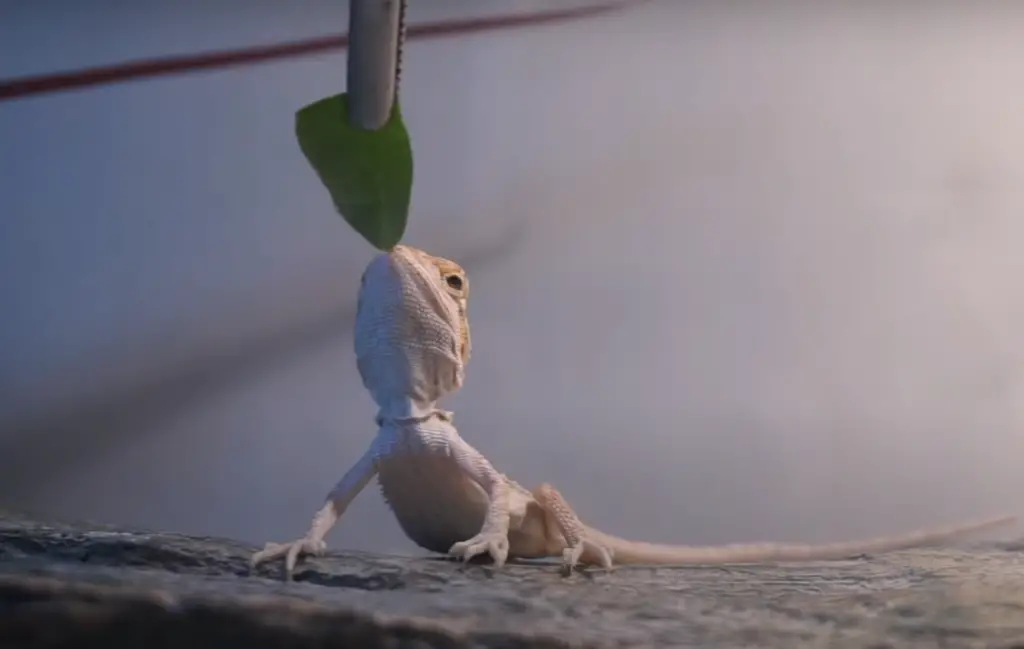
In conclusion, these reptile pets need a nutritious and well-balanced diet to thrive. Vegetables are an essential part of their diet that can provide them with the essential vitamins and minerals they need to stay healthy. This post has gone over the various vegetables that are safe and beneficial for your beardie, how much to feed them, how to prepare it properly, and what to avoid. By following these tips, you’ll be well on your way to being a responsible and caring beardie owner!
Zucchini for a Beardie: Benefits and Drawbacks
If you have a bearded dragon, you may be interested in learning more about the diet of these amazing creatures. These reptiles are omnivorous, which means that they can eat both plants and insects. Generally, the right diet for them consists of about 80% insects and 20% greens. While some owners focus on providing a varied diet of insects, it is equally important to offer greens that are rich in vitamins and minerals. One plant that is safe and beneficial for a bearded dragon is zucchini. In this part of our blog, we will discuss the benefits and drawbacks of including zucchini in a bearded dragon’s diet and how to prepare it for your pet.
Benefits of feeding zucchini to your beardie
Zucchini is a good source of minerals and vitamins, such as vitamin A, potassium, and calcium. These nutrients are essential for a bearded dragon’s health, growth, and development. Vitamin A helps maintain strong eye health, while potassium supports good digestion, nerve and muscle function. Calcium helps maintain strong bones and muscles. Bearded dragons need a calcium-to-phosphorus ratio of 2:1 in their diet, which can be achieved by feeding them with zucchini.
Additionally, zucchini is low in oxalates, which can help prevent calcium from binding to oxalates in the digestive tract and resulting in the formation of urate crystals. These crystals are very painful for bearded dragons and can lead to the formation of kidney or bladder stones. [2]
Drawbacks of feeding zucchini to your beardie
While zucchini is safe for bearded dragons, it has some drawbacks that you should consider before feeding it to your pet. Firstly, zucchini has a high water content. Feeding too much water-rich food can cause your pet to have runny or watery dung. This could lead to health complications, including dehydration.
Secondly, zucchini is also low in protein, which is an essential nutrient for bearded dragons. Feeding too much zucchini can lead to a protein deficiency. It is really important to maintain a balanced diet and feed your reptile pet with other high-protein foods such as crickets or mealworms.
How to Prepare Zucchini
When preparing zucchini for such a reptile pet as a bearded dragon, it is highly important to clean it thoroughly before serving it. Cut it into small, bite-sized pieces to make it easier for your pet to eat and to prevent choking. Consider steaming the zucchini to make it softer and easier to digest. Steaming also helps to reduce the number of oxalates, making it a safer food for your pet to eat.
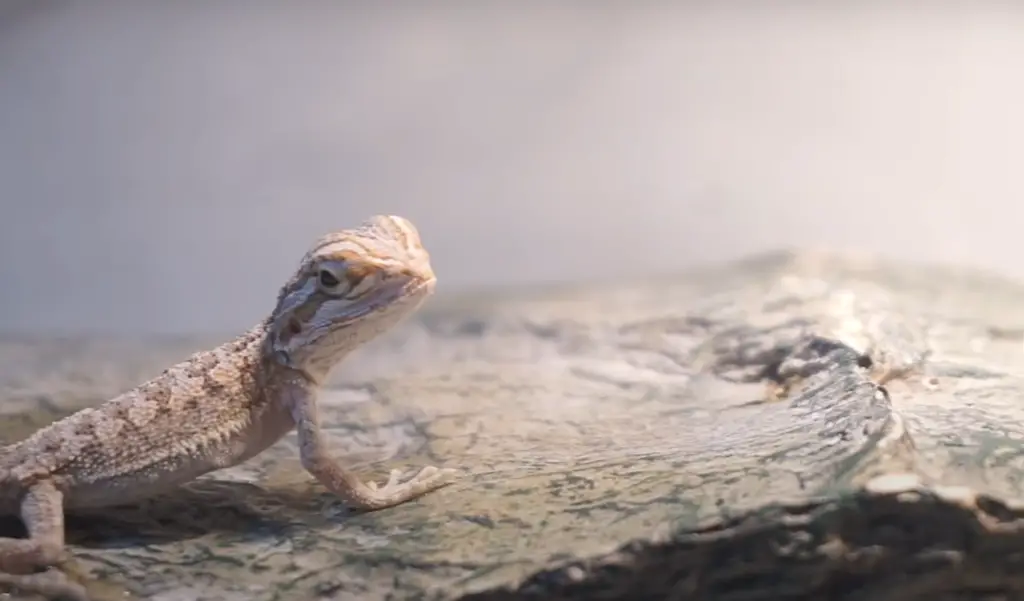
You can feed your bearded dragon zucchini once or twice a week as part of a balanced diet.
In conclusion, zucchini is safe and beneficial for bearded dragons when fed in moderation. It is a great source of highly important nutrients such as vitamin A, potassium, and calcium. However, it should not be the primary source of food because it has a high water content and low protein content. Therefore, it is important to maintain a balanced diet by feeding your bearded dragon with a variety of insects and greens. When feeding zucchini, ensure you clean it well, cut it into small pieces, and consider steaming to make it easier to digest and reduce the number of oxalates. By doing so, you can give your bearded dragon a healthy and varied diet that will keep them happy and healthy.
Is Zucchini Skin Safe for a Bearded Dragon?
Bearded dragons can be one of the easier reptiles to care for as a pet, but they still need proper care and an appropriate diet to maintain their health. One of the main concerns of a bearded dragon keeper is the food they serve to their pet.
So now we will answer this question and provide you with essential information to care for your reptile pet.Zucchini is a perfect source of potassium and vitamin A, making it an excellent addition to the diet of a bearded dragon. It’s also rich in fiber and has low-calorie content. However, the skin of a zucchini can present a choking hazard to such a reptile pet as a beardie, especially if it’s not cut into bite-sized pieces. The skin may also be challenging to digest and lead to digestive problems.
If you want to feed your beardie zucchini, always peel it first. Zucchini flesh is far more nutritious than its skin, making it a crucial part of the diet of a beardie. Ensure to serve fresh and washed zucchini preferably raw. You can also bake the zucchini slightly, making it softer and more appetizing for your bearded dragon. [3]
It’s essential to know the correct amount of food to serve to your bearded dragon.
You should also avoid overfeeding your bearded dragon, as it can cause them to become overweight and lead to health problems in the future.Supplementation is also necessary for your reptile pet. You may use Vitamin D3 and calcium supplements to aid your pet’s growth and maintain healthy bones. Always dilute the supplements in water or sprinkle them over their food evenly to make sure your reptile pet gets the appropriate amount of supplements.
The diet of a bearded dragon is essential to keep them healthy and thriving. Zucchini is a nutritious vegetable which is generally safe to feed your bearded dragon when prepared correctly. Always peel the skin before giving it to your pet and serve it in small quantities, combined with a variety of insect and plant-based foods. Make sure to provide your bearded dragon with the correct dietary supplements to ensure their growth and overall well-being.
Suggestions on How to Feed Zucchini to Your Beardie
If you own a bearded dragon, you already know how crucial it is to offer them a well-balanced diet. These reptiles, being omnivores, require both animal and plant-based foods to get all the nutrients they need.
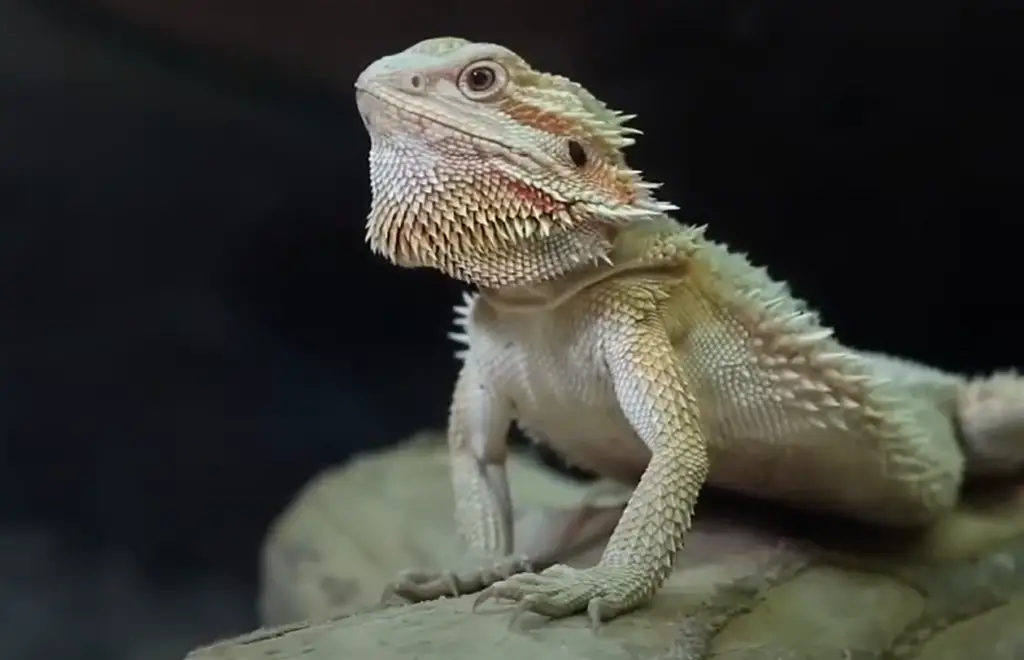
Delicious, easy to prepare, and packed with vitamins and minerals, Zucchini is a perfect addition to the diet of your bearded dragon. In this part of our blog post, we’ll be sharing some suggestions on how to feed Zucchini to your beardies, ensuring your pet nibbles on some healthy treats.
Raw Zucchini
Raw Zucchini, sliced into small bite-sized pieces, is a great treat for your Bearded Dragons. Cut up a small zucchini into pieces that would be suitable for your Bearded Dragon’s size. While feeding, ensure the pieces aren’t too big to avoid choking. You may also grate the Zucchini for smaller dragons or hatchlings. Raw Zucchini is a high source of fiber and low in calories, making it a healthy treat option for your Bearded Dragon.
Steamed Zucchini
Steaming Zucchini, just like boiling, softens the vegetable and makes it easy to digest for Bearded Dragons. To steam, cut it into slices or cubes and add it to a steamer basket with some water in the bottom. Cover and steam for about 5-8 minutes, or until the Zucchini is soft and tender. Once cooked, let it cool down completely before you start feeding it to your reptile pet.
Roasted Zucchini
Roasting Zucchini adds flavor to it and brings out the best in it, making it a fun way to feed your Bearded Dragon. Cut the Zucchini into thin slices and season them with spider pumpkin spice or bab oregano or rosemary. Place the Zucchini on a baking sheet and bake for about 15-20 minutes in the oven, or until tender. Let it cool down before you serve it to your Bearded Dragon.
Zucchini as a Supplement
If you have commercially made Bearded Dragon food, you can use Zucchini as a supplement. Blend a few pieces of Zucchini and mix with other veggies or feed with other greens. This helps add a natural flavor and nutrients to your Dragon’s diet.
To ensure your reptile pet’s healthy growth, it’s highly important to make their diet well-balanced and adding Zucchini is an excellent way to achieve this. It’s essential to offer Bearded Dragons proper portions and rotate their vegetables to prevent boredom and ensure they receive a variety of nutrients. With this information, we hope you gained a wealth of knowledge about feeding Zucchini to your Bearded Dragons- raw, steamed, roasted, or as a supplement. Happy feeding!
Health Risk for a Beardie of Overeating Zucchini
Reptiles are fascinating creatures to keep as pets. They are the embodiment of prehistoric times. One of the most common reptiles kept as pets is the bearded dragon. These docile creatures are incredibly low-maintenance, making them ideal for new animal guardians. However, their dietary needs are specific, and consuming specific food items can cause health problems. One of these is zucchini, a common vegetable fed to beardies. Now we offer you to discuss why zucchini can be harmful to your bearded dragon, resulting in health problems that can even lead to death.
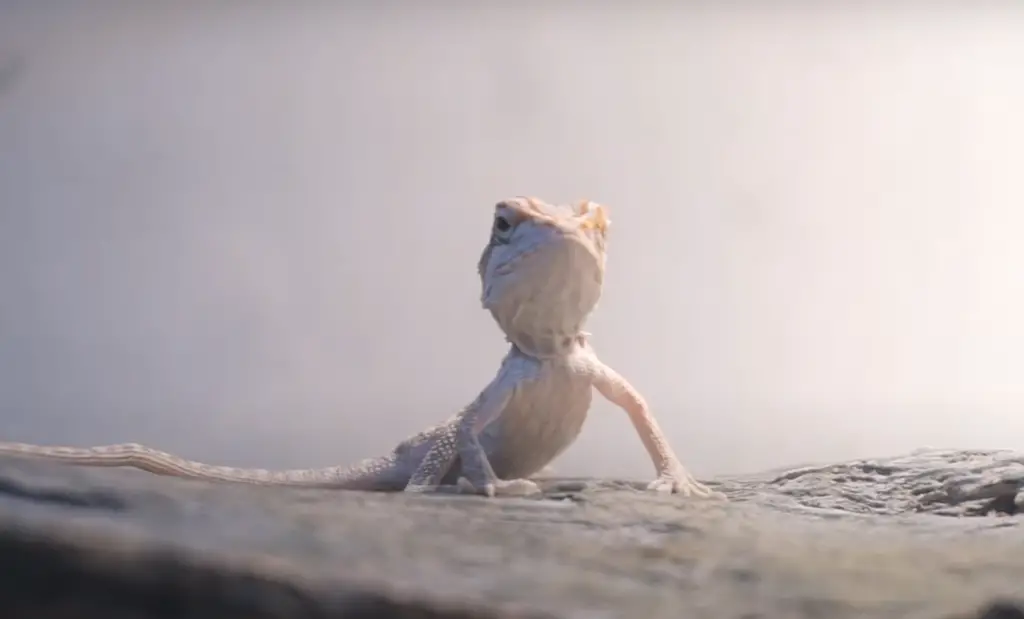
Bearded dragons’ dietary requirements are specific. According to the Animal Hospital of North Asheville, they require a diet comprised of 80% insect protein and 20% vegetables and fruits. Insects are the foundation of their diet.
Overfeeding your beardie with vegetables and fruits such as zucchini is not advisable. Zucchini is low in nutrition and high in water content. Ingesting too much water produces loose stools that can lead to dehydration.A high water content in a bearded dragon’s diet can also lead to bloating, which can potentially cause impaction, a dangerous condition where the digestive tract is blocked. Impaction is one of the most common health issues in bearded dragons. Symptoms include a lack of appetite, passing stools that are either hard, watery, or absent, lethargy, and swelling of the abdomen. It’s a serious condition that requires immediate medical attention to prevent your beardie from enduring severe health complications.
Ingesting too much zucchini and other vegetables can displace the insect protein requirement needed for a beardie’s diet, causing malnutrition. Beardies can also suffer from other medical conditions from inadequate nutrition. For instance, bone diseases manifest in bearded dragons due to a lack of calcium and other essential nutrients. As a result, bearded dragons that suffer from bone diseases can suffer from limb deformities, spinal issues, and fractures. Bearded dragons need adequate calcium to ensure they efficiently process food and avoid health issues.
In conclusion, feeding your bearded dragon with too much zucchini can lead to health issues that can oftentimes be fatal. Beardies have a sensitive digestive system, which requires special care to ensure they thrive in healthy conditions. Bearded dragon guardians need to understand the nutritional requirements of their pets. This way, they can avoid potential health complications. Always be cautious about the quantity of vegetables and fruit in your beardie’s diet. A beardie’s protein and vegetable intake should be balanced. Feeding your beardie with more insects than vegetables is crucial to keep them healthy. If your bearded dragon is experiencing health issues, it’s essential to take them to an exotic animal veterinarian immediately. Being a responsible pet owner involves ensuring your pet’s physical well-being, and in the case of a bearded dragon, this involves careful attention to diet choices and nutritional needs.
FAQ
Can beardies eat squash and zucchini?
Yes, bearded dragons can indeed eat squash and zucchini. These vegetables are great sources of vitamins and minerals, such as Vitamin A, Magnesium, and Potassium. They both contain a lot of water and are low in fat, which helps in keeping your bearded dragon hydrated and maintain their healthy weight. Bearded dragons can eat both of these vegetables either raw or cooked, but preparing them in the right way is crucial. To ensure safe consumption, remove the skins and seeds and slice them into small portions.
Can bearded dragons have raw zucchini?
Raw zucchini is not toxic for bearded dragons, but it’s also not the best way to serve it. Feeding raw zucchini can cause digestive problems in your bearded dragon because of its tough skin and dense flesh.
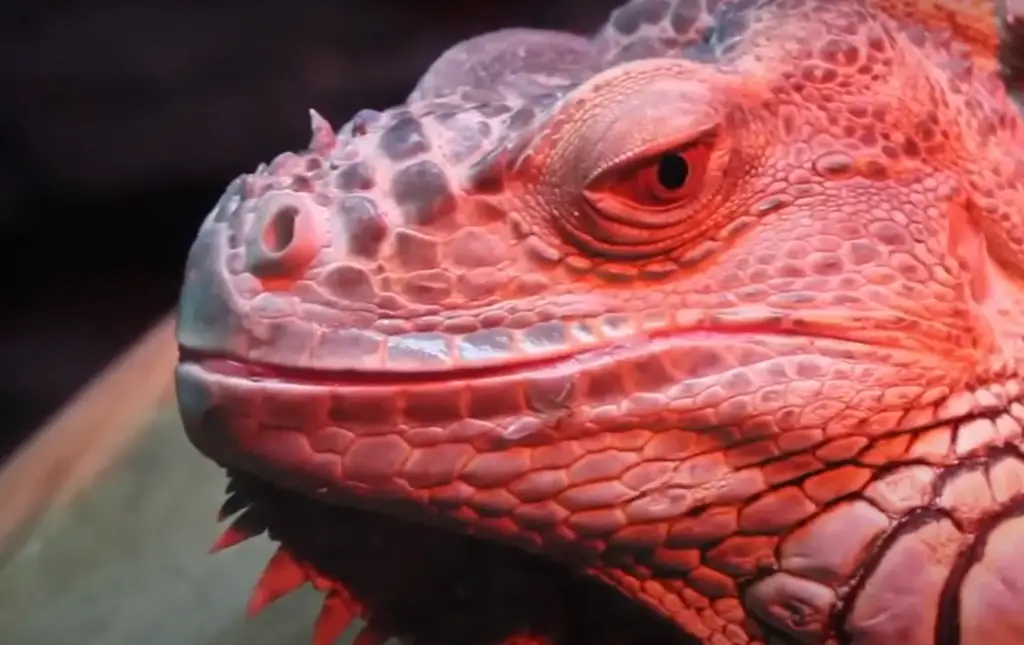
Therefore, it’s important to cook zucchinis before feeding them to your bearded dragon. Cooked or steamed zucchinis are easier to digest and provide more nutrients to your pet.
What vegetables are toxic to bearded dragons?
Not all vegetables are safe for bearded dragons to eat, and some are harmful to their health when ingested. For example, vegetables like avocado, rhubarb, spinach, kale, and beet greens should be avoided, as they contain oxalates and calcium that interfere with their digestive tract. These vegetables can cause diarrhea, kidney problems, and even death in severe cases. Always research the nutritional content of vegetables before feeding them to your bearded dragon to ensure that you’re providing safe and healthy food.
Useful Video: Is it Safe for Pet Beardies to Have Zucchini to Eat?
Conclusions
In conclusion, bearded dragons can indeed eat zucchini, and it can be a healthy part of their diet. However, like with any other food, you should ensure that you feed it to them in moderation and take other essential precautions. It’s crucial to ensure that the zucchinis you feed your dragon are clean, fresh, and cut into small pieces before introducing them to your pet. With the right care, your bearded dragon will continue to thrive and be an enjoyable pet to own.
References:
- https://www.hepper.com/what-vegetables-can-bearded-dragons-eat/
- https://biobubblepets.com/can-bearded-dragons-have-zucchini-exploring-the-benefits-and-risks-of-feeding-zucchini-to-your-pet-reptile/
- https://dragonsdiet.com/blogs/dragon-care/can-bearded-dragons-eat-zucchini#:~:text=Follow%20these%20easy%20steps%20so,be%20quite%20difficult%20to%20remove.

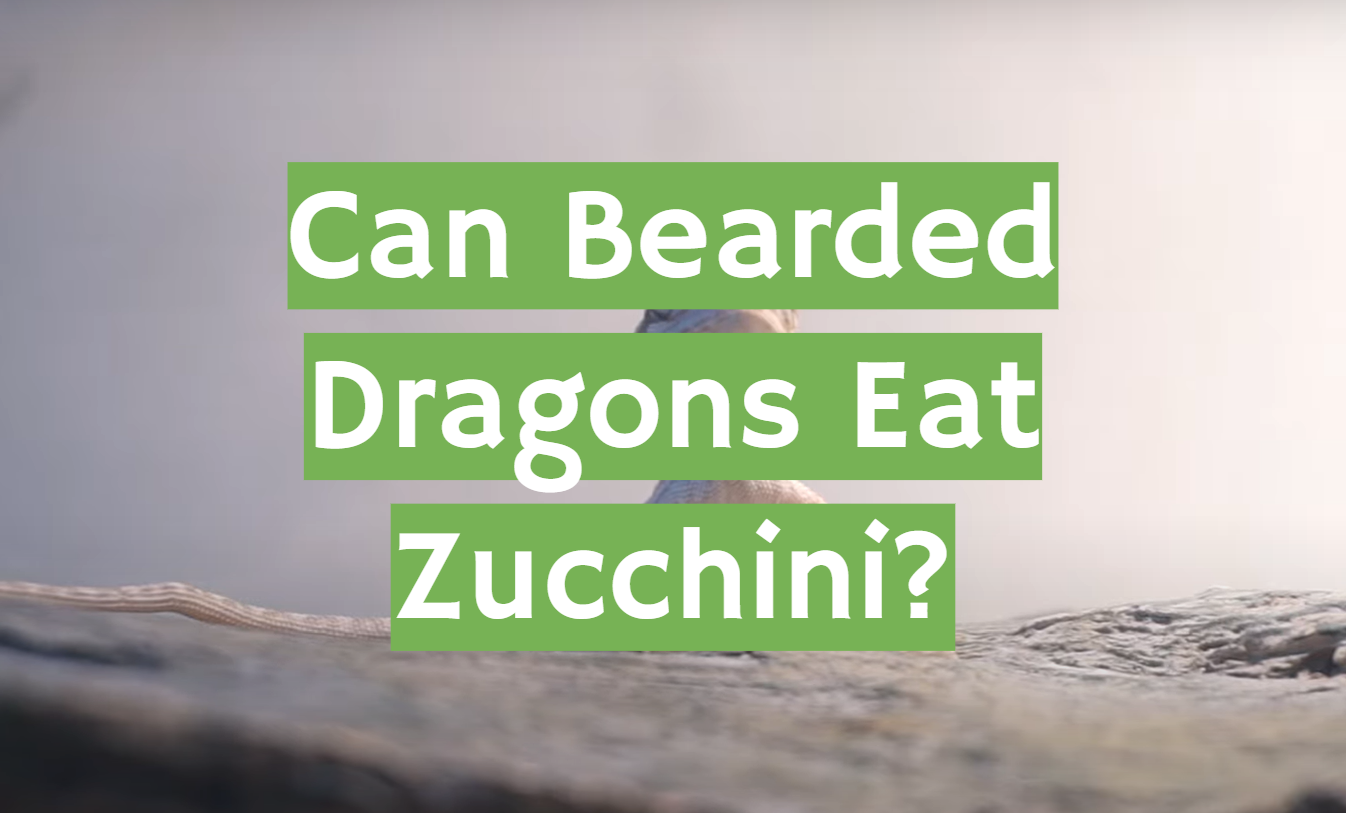
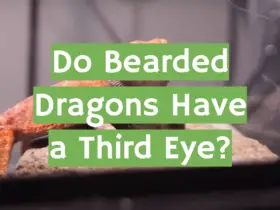

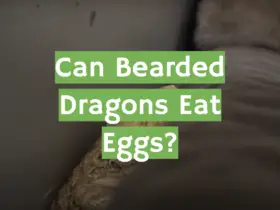

Leave a Review